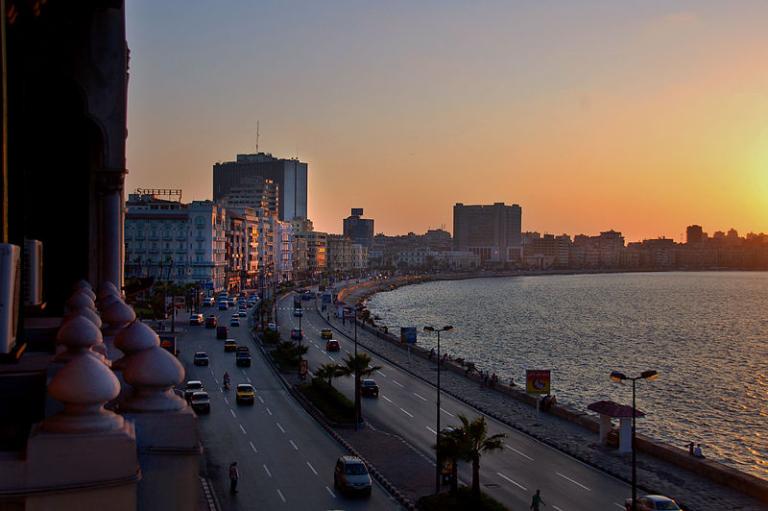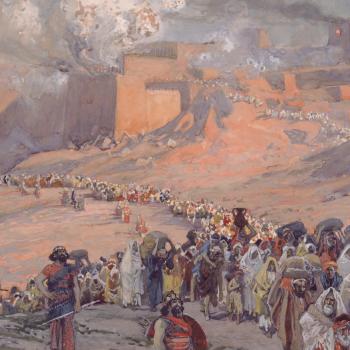
On the relative and absolute decline of the Islamic world, beginning with particular reference to Egypt:
This was the province that the Roman emperor had kept under his own personal command. Other provinces might be left to the theoretical control of the Senate, in keeping with the long-standing myth that the emperor was merely First Citizen of Rome. But not Egypt. It was too important. Its two annual crops, and the endless streams of grain boats crossing and recrossing the Mediterranean between Alexandria and Rome, were essential to the “bread and circuses” that the emperor had offered to the urban masses of his capital city, and by which he kept them satisfied and quiet.
Arabs controlled Iraq, the ancient land of the Tigris and Euphrates. They owned the ancient city of Damascus. The scientific, medical, philosophical schools of Syria and Mesopotamia were theirs. This was not a transient situation. The civilization that grew out of the Arab conquests and the spread of Islam was, for several centuries, the undisputed leader of the world in virtually every field of intellectual activity. We have seen that Arabic was the language of science and mathematics, and of philosophy. Into it poured the riches of the literature and the thought of India and Greece and ancient Persia as well as the unleashed creativity of the Muslims themselves. In a like manner, vast trade networks linked China to Morocco, and central Asia to both coasts of Africa. The wealth of the bazaars of Isfahan, Cairo, Damascus, Baghdad, Istanbul, and Casablanca was staggering.
By contrast, the history of the West can seem backward and provincial during the same period. As pointed out, what we often mean by the history of the West, or even by world history, is really the history of part of a peninsula extending westward from the Eurasian landmass. I remember when the realization of how big the Islamic world was, and how constricted the world of Europe seemed, first hit me with real force. I was sitting in a graduate seminar in Cairo, listening to a masterful lecturer discuss the Safavid, Ottoman, and Mughal Empires. India, Morocco, Iran, central Asia— all were interwoven in the vast fabric. Suddenly, the history of Europe, with its little wars between English counties and its struggles over which warlord should control a portion of western France, seemed small and petty. In fact, they reminded me of one of the “rumbles” between the Sharks and the Jets in West Side Story.
I do not mean to be snide; the art and history of the West are rich and fascinating. I myself am a passionate lover of Europe. But our neglect of the East in our “world history” classes cannot be justified. We Westerners have often spoken of “the unchanging East,” but this has been merely to conceal our ignorance of the many and tumultuous changes that have constantly affected the region throughout its history. It may help us, and humble us, to know that the Arabs often had this same attitude about us during their prime. One very famous Arab historian, writing near the end of the fourteenth century, surveyed developments in science and the arts around the world. He talked about the Chinese and the Indians and, of course, the Arabs and the Persians. He had much to say of their civilizations. Then he came to Northern Europe. “Who knows what’s going on up there?” he said in effect. “And who cares?” Europe was backwater, a nowhere. Nothing of any interest had every happened in those dense forests and cold murky villages, and, most likely, nothing ever would.
Thus, it came as a shock when the West suddenly took the lead, in politics, science, technology, and in wealth. And, to make matters worse, the Islamic world almost simultaneously discovered itself to be in clear, evident, and well-advanced decline. Furthermore, it wasn’t only in relative terms that the Islamic world had deteriorated, although this was manifestly a large part of it. The West’s sudden surge forward is a fact historians still do not fully understand. Was it the rise of free markets? The influx of wealth from the Americas? The Protestant work ethic? No one really knows. Whatever the explanation may be, the flowering of Islam had also declined in absolute terms. It was not the creative society it had once been. Little great literature was being produced. Few, if any, new commentaries were appearing on the Qur’an. Instead, there were commentaries on earlier commentaries. There were dictionaries and compilations, but the originality was gone. Worse, perhaps, is that the Islamic world had closed upon itself. Where, in earlier centuries, it had eagerly, almost greedily, consumed and assimilated as much Greek medicine, science, and philosophy as it could get, and where once it had imported Sanskrit and Persian literature as well as astronomy, it now seemed unable to absorb new ideas. Indeed, it often rejected new ideas in a defensive obsession with the past. There had always been a tension between custom (sunna) and innovation (bid’a) within Islam and Islamic culture. Such tension was probably even healthy. But now, it seemed, the past had gained the upper hand.












